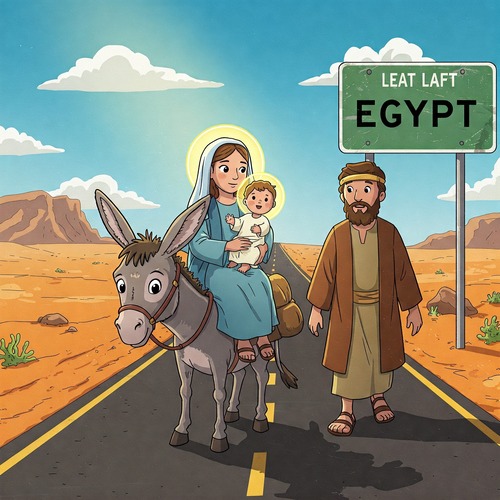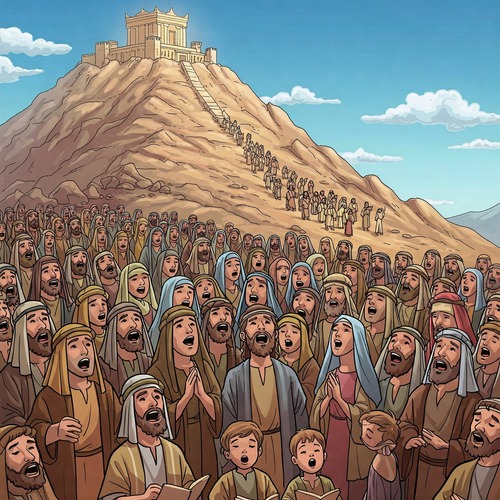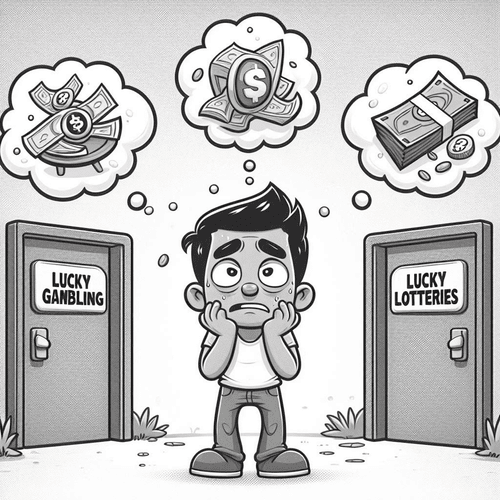‘What Sorrow Awaits You Who Are Rich…’: What Does Jesus Mean?
The words hang in the air like a sword over comfortable Christianity: “What sorrow awaits you who are rich, for you have your only happiness now” (Luke 6:24). Just moments after blessing the poor, Jesus delivers this stark warning to the wealthy. For many believers enjoying material abundance, these words create profound discomfort. Is Jesus condemning wealth itself? Are the rich excluded from God’s kingdom?
WHAT SORROW AWAITS YOU…’: THE TEXT IN CONTEXT
Understanding Jesus’ warning requires careful attention to Scripture’s full teaching on wealth. While Luke records Jesus saying “Blessed are you who are poor” (6:20), Matthew’s parallel passage speaks of being “poor in spirit” (5:3). This isn’t contradiction but complementary truth—Jesus addresses both external poverty and spiritual humility.
Scripture consistently shows wealth itself isn’t condemned. Abraham was “very wealthy” (Genesis 13:2), Job’s riches were restored by God (Job 42:10), and Joseph of Arimathea used his wealth to serve Christ (Matthew 27:57-60). Paul doesn’t tell Timothy to command the rich to become poor, but to be generous and trust in God rather than uncertain riches (1 Timothy 6:17-19).
The key lies in understanding what Jesus means by “you have already received your comfort.” The Greek word apechete is a commercial term meaning “paid in full”—suggesting those who find ultimate satisfaction in material abundance have settled for a tragically insufficient payment. And they’ve been paid in full already. More sobering still, Jesus speaks of future sorrow awaiting those whose comfort ends with this life. While the poor will be “comforted” eternally (Luke 6:21), those who cling to earthly riches face the terrifying prospect of eternal loss—like the rich man in Jesus’ parable (Luke 16:19-31) who found himself in torment while Lazarus was “comforted” in Abraham’s bosom.
THE REFORMED UNDERSTANDING: HEART IDOLATRY, NOT ECONOMIC STATUS
Why does wealth pose particular spiritual danger? Wealth amplifies existing sinful tendencies toward self-sufficiency and pride. As Calvin observed, the human heart is “a factory of idols,” and wealth provides particularly alluring raw material.
The real danger isn’t having money but trusting in money. When wealth becomes our functional saviour—providing security, identity, and satisfaction—it displaces God Himself. Moses warned Israel about this exact temptation: “You may say to yourself, ‘My power and the strength of my hands have produced this wealth for me'” (Deuteronomy 8:17).
Consider the rich young ruler (Mark 10:17-22). Jesus’ demand to sell everything wasn’t a universal requirement for salvation but a precise diagnosis of this man’s particular idol. His wealth had become his god. Contrast this with Zacchaeus (Luke 19:1-10), who remained wealthy after meeting Jesus but held his riches with open hands, or Lydia (Acts 16:14), the prosperous businesswoman who faithfully supported Paul’s ministry.
The Reformed tradition recognises salvation comes by grace alone, not economic status. But it also acknowledges wealth can create the illusion of self-sufficiency, thus keeping us from recognising our desperate need for grace.
THE DEEPER SPIRITUAL REALITY: FALSE COMFORT AND TRUE SECURITY
Jesus’ warning about receiving “comfort” points to a profound spiritual tragedy. Those who find ultimate comfort in material things miss the eternal comfort found in God alone. This echoes the Laodicean church’s delusion: “I am rich; I have acquired wealth and do not need a thing” (Revelation 3:17), while being spiritually “wretched, pitiful, poor, blind and naked.”
Wealth creates what Tim Keller called “counterfeit gods”—things that promise to deliver what only God can provide. The wealthy often miss the beatitude “Blessed are those who hunger and thirst for righteousness” because their physical hunger is satisfied and their spiritual appetite dulled.
Yet even here, grace breaks through. Jesus’ seemingly impossible statement—”It is easier for a camel to go through the eye of a needle than for someone who is rich to enter the kingdom of God”—is immediately followed by hope: “With man this is impossible, but with God all things are possible” (Mark 10:25-27). God’s grace can penetrate even the hardest, most self-sufficient heart.
LIVING FAITHFULLY WITH WEALTH: REFORMED PRINCIPLES
For those blessed with material abundance, Scripture offers clear guidance:
- Recognise God’s ownership. “The earth is the Lord’s, and everything in it” (Psalm 24:1). We’re stewards, not owners, of whatever wealth we possess.
- Practice radical generosity. The Macedonian churches, despite their “extreme poverty,” gave “beyond their ability” (2 Corinthians 8:2-3). Wealth held rightly flows freely to Kingdom purposes.
- Hold your possessions lightly. Paul’s “as if not” principle (1 Corinthians 7:29-31) applies especially to possessions. We use wealth without being used by it.
- Examine regularly. Are we trusting in uncertain riches or the living God (1 Timothy 6:17)? This requires honest, frequent self-assessment.
The Reformed balance avoids both ascetic extremes and prosperity gospel distortions. Wealth becomes a tool for Kingdom advancement when held with proper perspective—neither despised nor worshipped, but stewarded faithfully.
GRACE FOR THE RICH AND POOR ALIKE
Jesus’ warning, ‘What sorrow awaits you…’, ultimately serves as an invitation to the rich. He exposes the poverty of earthly comfort to point us toward true riches found in Himself. Whether materially rich or poor, our security must rest in Christ alone.
The question isn’t whether we have wealth, but whether wealth has us. Where is our ultimate comfort? In bank accounts that fluctuate and possessions that decay, or in the unchanging love of God revealed in Jesus Christ?
For us hearing Jesus’ warning today: may it drive us not to despair, but to the cross, where true comfort awaits all who come empty-handed, regardless of what fills their wallets.
‘WHAT SORROW AWAITS YOU…’: RELATED FAQs
What did John Calvin specifically teach about wealth and stewardship? Calvin taught all wealth belongs to God and that we’re merely stewards entrusted with divine resources. He wrote, “Let this be our principle: that the use of God’s gifts is not wrongly directed when it is referred to that end to which the Author himself created and destined them for us.” Calvin emphasised wealth becomes sinful when it’s used for self-indulgence rather than serving God and neighbour. He also warned that riches often become “the principal seat of idolatry” in human hearts.
- How does this passage relate to the prosperity gospel movement? Jesus’ warning directly contradicts prosperity theology’s core premise that material wealth indicates God’s blessing and spiritual maturity. The prosperity gospel essentially reverses Jesus’ beatitudes, suggesting the rich are blessed and the poor lack faith. Reformed theology recognises that while God may bless with material goods, wealth can equally be a spiritual hindrance that hardens hearts toward gospel truth. True prosperity is found in spiritual riches, regardless of material circumstances.
- What is John Piper’s “wartime lifestyle” and how does it apply here? Piper advocates for a “wartime lifestyle”—living with the urgency and sacrifice appropriate to our spiritual battle against Satan, sin, and suffering. This means avoiding luxury and excess while people perish without the gospel. Piper argues spending excessively on comforts while mission fields lack workers and resources demonstrates misplaced priorities. The “wartime lifestyle” challenges wealthy Christians to live below their means and invest the difference in eternal Kingdom purposes.
How did RC Sproul address the dangers of materialism? Sproul taught materialism’s greatest danger lies in creating practical atheism—living as if God doesn’t exist or matter. While material things aren’t inherently evil, they become idolatrous when they compete with God for our ultimate allegiance. Sproul warned prosperity can delude us into thinking we’re self-sufficient, leading to spiritual complacency. He frequently quoted Jesus’ teaching that we cannot serve both God and money (Matthew 6:24).
- What does Timothy Keller mean by money as an “idol”? Keller defines idols as “good things turned into ultimate things”—and money is particularly seductive because it promises control, security, and significance. He teaches that money becomes idolatrous when we look to it for what only God can provide: our identity, security, and salvation. According to Keller, the idol of money is exposed not by how much we have, but by how we respond when it’s threatened or lost. Financial anxiety often reveals that money has become a functional saviour.
- Does Jesus’ warning apply differently to different levels of wealth? Reformed theology suggests the principle applies universally, though manifestations vary by economic level. Even modest wealth compared to global poverty can create spiritual danger if it breeds self-sufficiency. The warning isn’t about reaching a specific income threshold but about heart posture toward whatever resources we possess. However, greater wealth typically brings proportionally greater temptation toward pride and independence from God. Each believer must examine whether their resources draw them closer to or further from dependence on Christ.
How should churches practically address wealth disparity among members? Reformed churches should preach faithfully about money without showing partiality to rich or poor (James 2:1-9). This includes teaching biblical stewardship, modelling financial transparency in church operations, and creating opportunities for wealthy members to use resources for Kingdom purposes. Churches must avoid both courting the wealthy for donations and demonising prosperity when it’s held with open hands. The goal is fostering a community where both rich and poor experience gospel transformation in their relationship with money.
‘WHAT SORROW AWAITS YOU…’: OUR RELATED POSTS
Editor’s Pick

Shouldn’t the Book of Enoch Be In the Bible? Why Isn’t It?
The Book of Enoch has fascinated scholars, theologians, and curious readers for centuries. Mentioned in the New Testament and revered [...]

‘Out of Egypt I Called My Son’: Did Matthew Misuse Hosea 11:1?
When Matthew quotes Hosea 11:1 in his Gospel—“Out of Egypt I called my son”—he draws a connection that has puzzled [...]

Bible Allusions: How They Enrich Our Grasp of God’s Word
Ever experienced that moment when you're reading Scripture and suddenly recognise an echo of another passage? That spark of recognition [...]

Old Testament Theophanies: What Purposes Did They Serve?
Throughout the Old Testament, we encounter remarkable moments when God manifests Himself in visible, often tangible forms to His people. [...]

When Words Fail: How the Holy Spirit Helps Us in Our Prayers
Ever sat down to pray and found yourself at a complete loss for words? Or perhaps you’ve prayed diligently but [...]

Isaiah 64:6: How Are Our Righteous Deeds Like Filthy Rags?
“We have all become like one who is unclean, and all our righteous deeds are like a polluted garment.” — [...]

The Greatest Yet the Least: How Is John the Baptist Both?
In Matthew 11:11, Jesus makes a statement that has puzzled Bible readers: “Truly I tell you, among those born of [...]

The Pilgrim’s Progress: Journeying Through the Psalms of Ascent
The Psalms of Ascent (Psalms 120-134) are a remarkable collection of fifteen songs that have guided God's people for millennia. [...]

Not Home Yet: How Scripture’s Exile Theme Shapes Our Faith
When we read Scripture carefully, a striking pattern emerges: God’s people are almost always on the move, displaced, or living [...]

At Pentecost: God Fulfils Covenant and Reverses Babel
The scene is electrifying. Jerusalem, crowded with Jewish pilgrims from across the known world. A sound like rushing wind fills [...]





